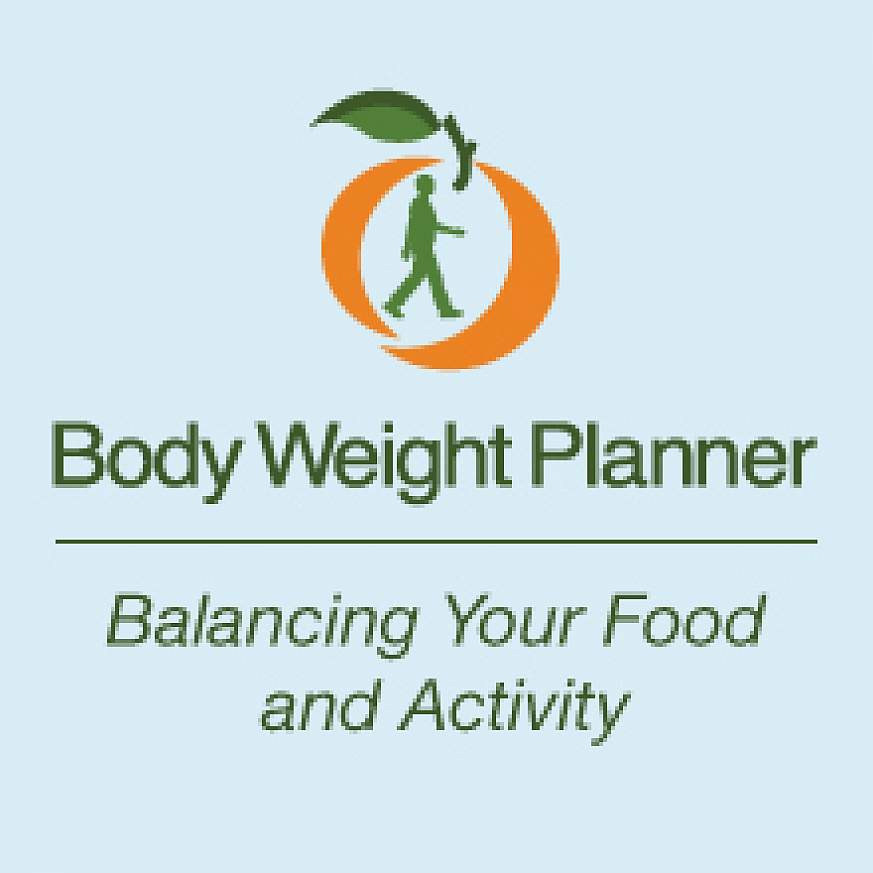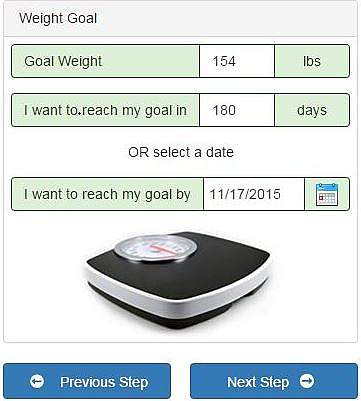You are here
News Release
Monday, July 20, 2015
NIH Body Weight Planner added to USDA SuperTracker food and activity tool
Science-based technology provides users greater customizing to help reach and sustain a healthy weight .

The U.S. Department of Agriculture (USDA) and National Institutes of Health have partnered to add the NIH Body Weight Planner to USDA’s SuperTracker online tool as a goal-setting resource to help people achieve and stay at a healthy weight. Created in 2011, the SuperTracker tool empowers people to build a healthier diet, manage weight, and reduce risk of chronic disease. Users can determine what and how much to eat; track foods, physical activities, and weight; and personalize with goal setting, virtual coaching, and journaling. With science-based technology drawing on years of research, the Body Weight Planner will enable SuperTracker’s more than 5.5 million registered users to tailor their plans to reach a goal weight during a specific timeframe, and maintain that weight afterward.
The math model behind the Body Weight Planner, an online tool published by NIH in 2011, was created to accurately forecast how body weight changes when people alter their diet and exercise habits. This capability was validated using data from multiple controlled studies in people.
“We originally intended the Body Weight Planner as a research tool, but so many people wanted to use it for their own weight management that we knew we needed to adapt it with more information about how to achieve a healthy lifestyle,” said Kevin Hall, Ph.D., who led creation of the Planner and is a senior investigator at the National Institute of Diabetes and Digestive and Kidney Diseases (NIDDK), part of the NIH. “The Planner is a natural fit within the SuperTracker as it lets people accurately determine how many calories and how much exercise is needed to meet their personal weight-management goals.”
The Planner’s calculations reflect the discovery that the widely accepted paradigm that reducing 3,500 calories will shed one pound of weight does not account for slowing of metabolism as people change their diet and physical activities. More recently, the math model was further validated using data from a two-year calorie restriction study of 140 people. With those data, Hall and colleagues showed the model can also provide accurate measurements of calorie intake changes by tracking people’s weight. Researchers are examining how to apply this method for public use.

More than two-thirds of American adults are overweight or obese. Maintaining a healthy weight can help prevent complications related to overweight and obesity such as heart disease, type 2 diabetes and certain types of cancer, some of the leading causes of preventable death.“We are pleased to offer a variety of interactive tools to support Americans in making healthy lifestyle changes,” said Angie Tagtow, executive director of USDA’s Center for Nutrition Policy and Promotion, which created and manages SuperTracker. “The NIH Body Weight Planner helps consumers make a plan to reach their goals on their timeline, and SuperTracker helps them achieve it.”
“NIH’s collaboration with USDA allows the public to quickly reap the benefits of the latest medical research results,” said NIDDK Director Griffin P. Rodgers, M.D. “Sharing resources and expertise lets us get out important information as efficiently as possible, empowering people to take charge of their weight and their health.”
The NIDDK, a component of the NIH, conducts and supports research on diabetes and other endocrine and metabolic diseases; digestive diseases, nutrition and obesity; and kidney, urologic and hematologic diseases. Spanning the full spectrum of medicine and afflicting people of all ages and ethnic groups, these diseases encompass some of the most common, severe and disabling conditions affecting Americans. For more information about the NIDDK and its programs, see www.niddk.nih.gov.
About the United States Department of Agriculture Center for Nutrition Policy and Promotion: The Center for Nutrition Policy and Promotion, part of USDA's Food, Nutrition and Consumer Services mission area, works to improve the health and well-being of Americans by developing and promoting dietary guidance that links scientific research to the nutrition needs of consumers.
About the National Institutes of Health (NIH): NIH, the nation's medical research agency, includes 27 Institutes and Centers and is a component of the U.S. Department of Health and Human Services. NIH is the primary federal agency conducting and supporting basic, clinical, and translational medical research, and is investigating the causes, treatments, and cures for both common and rare diseases. For more information about NIH and its programs, visit www.nih.gov.
NIH…Turning Discovery Into Health®
